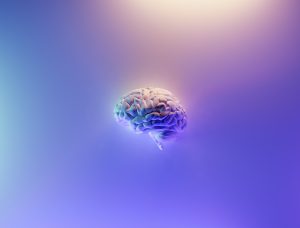The 5 vitamins for mental quality at work
Paloma Fuentes, a renowned doctor and expert in neurohappiness and neuroscience first Director of Happiness in Spain, happiness manager for 15 years in the Mahou-San Miguel Grup and expert in happiness medicine, explains how to make a company a place where work and well-being go hand in hand.
The expert defined happiness “as a type of energy that leads you to give the best of yourself, be more creative, think better and optimize all your capabilities. In Latin, the etymological origin of happiness comes from the word felixwhich means fertile, and that is how happiness is fertility”. According to Dr. Fuentes, by giving the best of ourselves, we develop ourselves further.. Thus, happiness is a more fertile mind, and serves as a biomarker of mental quality.

During his years as happiness manager he managed to instill the idea that happiness, like physical health, is cultivated, that happiness does not depend on what we have, but on what we are, that we are the sole responsible and protagonists of our happiness, and that we are the only ones responsible for our own happiness. improvement is possible thanks to the neuroplasticity of our brain (we continue to regenerate neurons until we are very old).
Dr. Paloma told us that an initiative that can be implemented very easily in companies is start each meeting with two minutes of relaxation and breathingThe experience has been a success in their work experiences, as this previous pause in their work experience has centers those summoned in the here and now, focuses them on the reason for the meeting, making the meeting much more fruitful.
Based on her book “The 20 Mental Vitamins to Go from Survivor to Supervivor“, Dr. Fuentes points out the 5 key characteristics to achieve happiness:
1. CompassionCompassion, understood as “that way of interpreting the bad that someone throws at you, as a call for help, because asking for help and offering it is very important. If we can have compassion, it helps us to live better. An example: imagine that someone responds to you in a bad way, and the first temptation is to strike back. But what if you realize that person might be having a bad day? Instead of responding rudely, you could choose friendly words and show understanding. Sometimes, a kind gesture can make your attitude change completely. Compassion always adds up!
2. Forgivenessis the capacity to digest traumatic events in our mind, absorbing what is valuable and discarding what is toxic. “Removing that mental ballast of resentment and hatred toward each other and oneself is therapeutic for moving forward.”
3. Equanimityof which he says that “it is the “pill” that keeps our mind balanced, no matter what happens (…) equanimity allows us, when something bad happens, to recover and return to my original state of balance to face the problems”. For example, imagine an unforeseen event during your vacation causes you to miss a flight. At that moment, applying the breath to calm the fear and confusion, and using your energy to accept the situation and find solutions, is key. Staying calm and looking for answers is the strategy!
4. Appreciation as another therapeutic key and defines it as “seeing the extraordinary in the ordinary. We have to understand that whatever comes into our life is extraordinary, because many people have put a lot of effort in that we have it and there are others who do not. As an example, look at the wonders of life that we tend to take for granted and place them in the “exceptional” category. Having a rewarding job, a loving family and good health are, in fact, exceptional experiences in themselves. You don’t need much more than that to feel lucky.
5. Caring for othersIf we want to be effective in connecting, listening to others in every conversation, in every project, and supporting them with our words and our participation, we are fertilizing our environment.
To train happiness in our daily lives, the doctor discusses seven fundamental actions:
1. Recognize ourselvesto improve our condition. Using techniques such as SWOT, we assess our weaknesses, threats, strengths and opportunities.
2. Repair our body-mind connection, through breathing exercises. He proposes to dedicate 6 minutes each day to breathing. With this small activity spectacular results are achieved in our body.
3. Refocus with an appreciative eye, the opportunities, aspirations, strengths and resources at our disposal.
4. Resignifyto take my brain out of the survival mode where it only sees the risk and normalize the positive I have, to also see the opportunity and the extraordinary in “the normal”.
5. Recharge my mind and body through sleep, proper nutrition, sports practice, etc.
6. Reconnect with others, valuing the importance of relating and sharing thoughts and feelings.
7. Reprogramby stepping out of our comfort zone.

On the role of companies such as Actua, focused on training and corporate development, the doctor commented that “disseminating, informing and training people is the fundamental task for the training departments of companies. You can’t integrate something without knowing it, and companies like Actua are fundamental to educate and open people’s minds by offering them alternatives, so when we talk about training we talk about opening our minds, about improving”.
When it comes to stress management, and contrary to the preconceived idea that it is harmful, Dr. Fuentes considers that stress is good, and that it is people who make it bad, since “stress is a natural reaction to change, which allows our body to adapt to what is a danger”. As human beings today are subject to many changes, and there is not much sense of real danger in modern Western society, we generate a lot of stress. Therefore, according to the doctor, “when a problem arises, the answer is to face it. The act of thinking that I can Overcoming a problem generates adrenaline, a good kind of stress, which drives me forward, and not cortisol, which is the bad kind of stress, and which makes me sick. And the difference in generating one type of stress or another is how I experience the situation.”
According to Paloma Fuentes, “the vast majority of mental problems occur due to a lack of mental resources. We have created a society based on the external, on the material, or in other words, we live in a hedonistic society. Aristotle spoke of happiness as eudamoniaHe opposed it to hedonism, conceived as the pleasure of the instantaneous and the material. Our criteria for success is based on the outside, when what really lasts is the inside, which is why it is so important to know that we have to build mental muscle for the bad times so we can deal with them better”.
In conclusion, the doctor pointed out that “it is necessary to spread happiness in corporations, people must understand that they have responsibility for their own well-being, and the company has a vital role to play in this. You have to come to the company to gain money, reputation, experience, etc. but more importantly, you have to come to gain mental health.”


